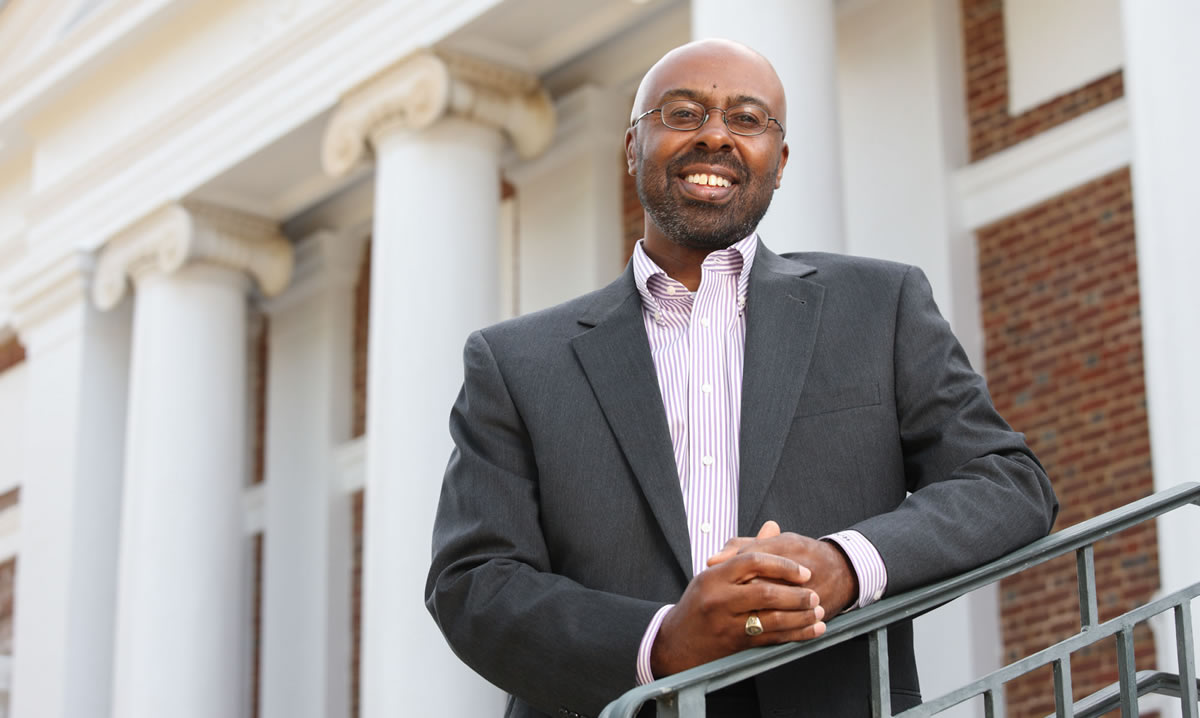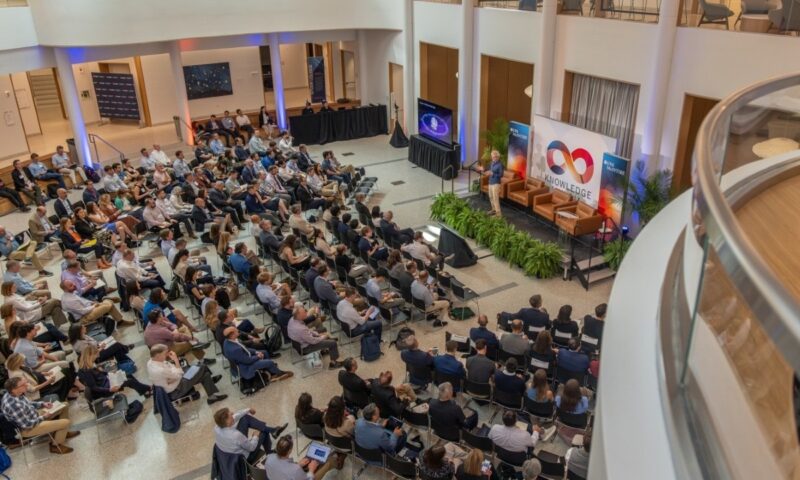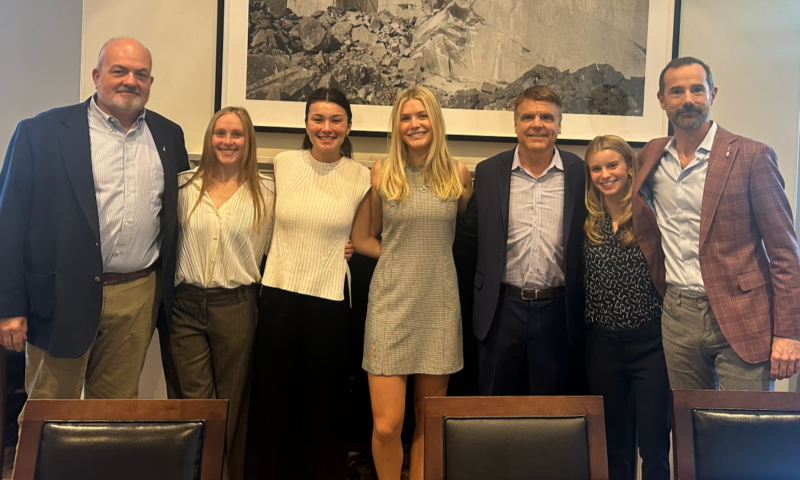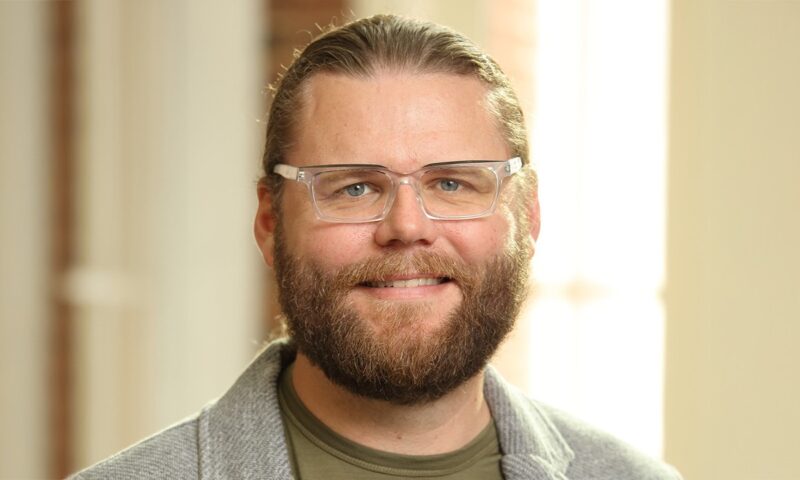As Director of the M.S. in Commerce Program, the McIntire School’s one-year master’s in management program, Professor Ira Harris has dealt with his fair share of the unexpected.
And now, amidst the backdrop of the pandemic and an atmosphere of ambiguity, Harris received some more unanticipated—though much better—news: He recently won the University’s Excellence in Education Abroad Award.
A member of the McIntire faculty since 2003, Harris took on the M.S. in Commerce leadership role in 2007, designing curriculum and leading the innovative, internationally based, monthlong Global Immersion Experience (GIE) courses, a highlight of the graduate program. Being duly recognized for his vision and commitment to McIntire’s global strategic initiative is the result of his tenacious efforts year after year.
Problem-Solving Specialist
By Harris’s own admission, the annual preparation process for the GIE courses requires a long lead time due to the complexities involved to properly execute them. So it’s no wonder that 2013’s European GIE track stands out in his memory. With the students in the track scheduled to travel to Istanbul, Turkey, five days before the long-planned arrival, large-scale peaceful protests a few blocks from the group’s hotel turned violent. The solution? Hang a left and make a quick shift to Barcelona, Spain.
“Though a familiar destination for me, diverting to Barcelona was a huge challenge for us,” Harris recalls. “It required us to squeeze the conventional three to four months of planning into approximately four days—an adventure that is difficult to forget.”
A few years later, Harris found himself in another memorable scenario on the morning of Aug. 12, 2017, when just days after the start of classes, an extremist rally on the Lawn caused the University to cancel activities. While the unfortunate event was a distressing introduction to Charlottesville for the M.S. Commerce Program’s new students, Harris notes that the unpleasant weekend led to some unforgettably powerful teaching moments the following Monday.
Now, the M.S. in Commerce and its hallmark GIE program grapple with a nearly universal shutdown caused by travel bans and social distancing measures initiated to combat the spread of coronavirus. Harris says that this historic crisis is “easily the most disruptive and upsetting” moment that he’s had to navigate during his time at the program’s helm. But even still, he and his team pivoted yet again, putting a plan in place that features five brand new online courses being offered in the traditional GIE’s stead.
Flexibility Is Key
Adapting this year’s GIE travel component gave Harris the opportunity to refocus his perspective of the program in the context of the School’s migration online. Though the ability to get the entire School’s courses up and running came as no surprise to him, he says that the impressive, speedy transition to an alternative delivery of coursework required a great deal of patience and hard work, underscoring the resiliency of faculty, staff, and students.
Yet the unprecedented change also presents an additional challenge to fulfilling a cornerstone of the overall McIntire experience, Harris says, since the School prides itself on being a high-touch institution valuing interactions both in and out of the classroom.
“We designed the GIE as a required component for the express reason of creating an experiential undertaking,” Harris says. “We have believed since before the program’s launch that immersing students in local culture, as well as interacting with global executives, is the best way to inform global thinking—far superior to simply reading about it. The prohibition against travel this year has been an obstacle to achieving this global mindset. We nevertheless have made the best of it.”
Despite the threat of impending fatigue from too many Zoom meetings, Harris says the students have rallied to overcome the demands of an exclusively online environment.
Lessons in Success
As a recipient of the Excellence in Education Abroad Award, Harris says that two aspects immediately come to mind regarding what serving as M.S. in Commerce Director has taught him about being successful. He points out that both are also concepts that he teaches students: the power of effective teamwork and the importance of vision.
“I quickly learned during the program design stages (in 2007-2008) that the role of program director is a multifaceted one. This graduate program is strongly connected to many other areas of McIntire, and its success is highly dependent on the cooperation of a very large group. The interdependencies forced me to work on improving my ability to build relationships—not to advance my personal goals, but those of the fledgling program.”
Regarding vision, Harris says that while each individual within the McIntire community has an area of specialty and responsibility, a strong connection to the School’s main objective drives positive outcomes.
“We share a common goal of participating in the education process of students admitted to this very competitive school,” he notes. “This concern for vision and the central mission binds our stakeholders (faculty, staff, students, alumni, corporate partners) and serves as a guidepost for our program leadership team. Perhaps the admonition to practice what we teach is an implicit lesson running through both.”
The Power of Connections
Harris’s strong leadership of the M.S. in Commerce Program has also informed his teaching and a philosophy that aims to fortify students’ thinking and decision-making skills, while guiding them to become productive citizens. He strives to equip them to interpret biases, stressing the importance of context and power of recognizing nonobvious relationships.
“Our students, like all of society, are facing a world in which the availability of information is vast, but in which it is increasingly difficult to find truth,” he says. “This increased ‘noise’ bears heavily on my teaching approach. As I deliver new course material, I focus specifically on identifying root causes and clarity of the broader phenomenon. Whether the task is analysis of global economic development, formulation of robust business models, or interplay between local culture and business practices, my central theme is highlighting the importance of drilling down to the relevant set of facts in order to inform our decision making.”
His position has also given him a greater appreciation for how the integration of functional areas such as finance, organizational behavior, accounting, and marketing operate—as well as well as how important student understanding of these interrelationships is for deep learning.
“This approach is central because it reflects how managers think about their business—that is, holistically versus in simplistic silos,” Harris says. “Strategy is my home area, and I taught for several years in the [McIntire’s] undergraduate Integrated Core Experience component prior to the launch of the graduate program. I strongly embraced our integration across the disciplines, but did not have a role in design. Participating in the graduate program design, however, has taught me that structure is profoundly important to accomplishing the complex outcome of students understanding the interconnections across markets, companies, and departments.”
He admits that while ensuring integration between areas—and within each area—is difficult, the dedication to those connections ultimately provides students with a keen sense of business competition and leaves them well-prepared for the marketplace.
Hope for the Future
After the current situation’s most imminent threats recede and allow life to return to normal, Harris says that like the rest of McIntire faculty and staff, he is excited to renew relationships with colleagues and students.
“The forced isolation has reminded us of the importance of simple human interaction. We have already been nudged out of our comfort zone, and I look forward to deconstructing the lessons learned toward pursuing new means of education innovation.”



